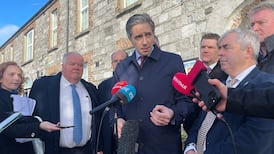After such a protracted period of negotiation, the Government, and not least the ESB management, will be disappointed that the implementation of the company's Cost and Competitiveness Review (CCR) remains in doubt. The current situation must appear bizarre and scarcely credible to the average citizen an overwhelming majority of ESB workers has endorsed the rationalisation package but the opposition of a tiny, if influential minority, may still be enough to block its implementation. Less than 350 shift workers in the generating stations - who fear the loss of potential overtime earnings - would appear to have the capacity to thwart the wishes of a workforce numbering some 9,000 people.
There must be lessons here for Government and for the Irish Congress of Trade Unions. The most obvious is that a move to aggregate voting of union members in large enterprises like the ESB is long overdue, especially when the very survival of the company is at stake. A situation, like that in the ESB - in which any one of the 60 categories of worker in the ballot can jeopardise the implementation of the CCR - is unrealistic and undemocratic. As it was, some 58 of the 60 categories voted to accept the deal but the wishes of the many may be frustrated by the few. With other semi states also facing make or break negotiations on their future, the case for aggregate voting is compelling.
The £270 million CCR, widely described as the most complex industrial relations package ever negotiated in the State does not represent a panacea for the ESB. The proposed 2,000 job cuts are one thousand less than originally sought by the company, while the estimated annual net saving to the company has also been revised downwards to £80 million. But in all the circumstances, the CCR represents the best, indeed the only way forward, for a company which must re invent itself in order to compete on the best possible basis with European competitors.
The deal gives workers a very generous severance package which would be the envy of the great majority of workers in the private sector. And, should it be finally accepted, it will give the ESB the long delayed price increases it so urgently requires. But the Government cannot be expected to approve a price increase until the long term future of the company is secured.
The Minister for Transport, Energy and Communications, Mr Lowry and ESB management struck the right note last night by insisting that there can be no renegotiations of the package. Any such move would open a Pandora's Box with potentially ruinous consequences for the company at a time when all its energies should be focussed on how to compete within the increasingly competitive international energy market.
ESB management must not be diverted from its course by last night's setback. In advance of next Tuesday's board meeting, the task must be to ensure that sufficient pressure is exerted on the shift workers, both by Government and by their fellow workers, to salvage the CCR. Those who opposed the deal must be told in very stark terms there is no alternative to the package now on the table.








